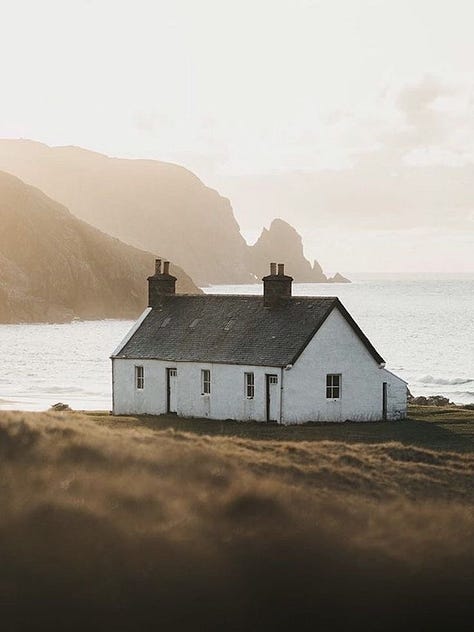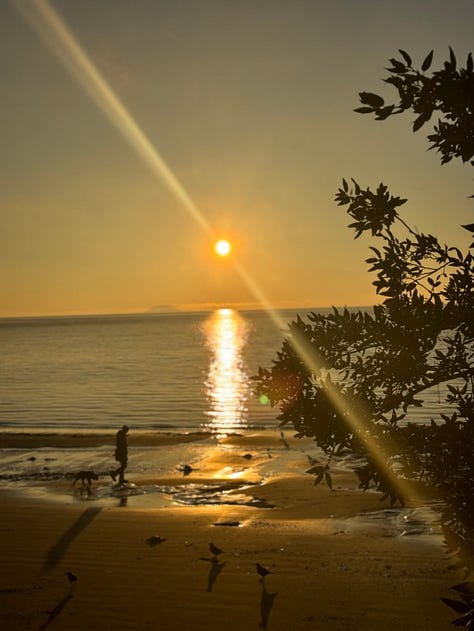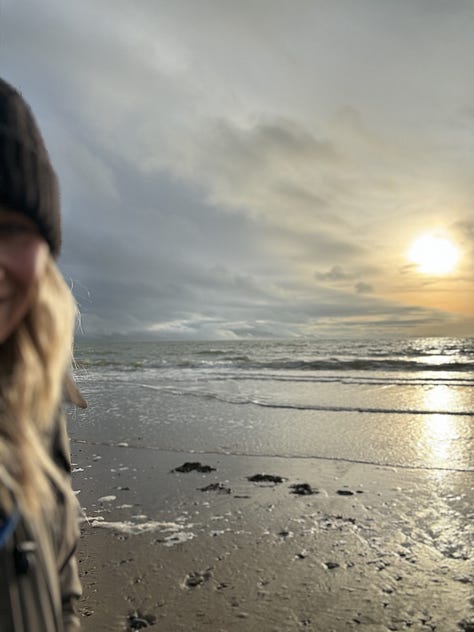


If you’ve just recently discovered my newsletter ‘with ease’ and would like to support my writing, be offered first refusal on my writing & wellbeing retreats with best selling authors, and receive discounts towards my therapeutic journalling workshops, please consider becoming a paid subscriber. Thank you x
Dear friend
How are you feeling today? I hope all is well and you’re easing yourself into the new year with no stress or relentless ‘to-do’ lists. I’m a little discombobulated. My inner critic is nattering on about the fact I should be getting back to work, answering emails and finalising my end of year elf-assessment - oh yawn! When all I really want to do is escape to a beach house, take the dogs, my journal and a pile of my Christmas books. Anyone else craving some solitude in the new year?
You know that feeling when everyone’s rushing around, making plans, filling their diaries and you’re just… not? The thought of an empty house, a warm drink, roaring fire and absolute silence…




